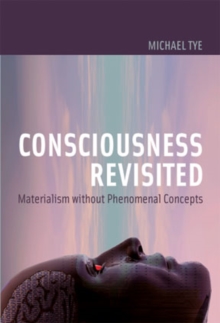
The Rediscovery of the Mind Paperback / softback
by John R. (UC Berkeley) Searle
Part of the Representation and Mind series series
Paperback / softback
Description
In this major new work, John Searle launches a formidable attack on current orthodoxies in the philosophy of mind.
More than anything else, he argues, it is the neglect of consciousness that results in so much barrenness and sterility in psychology, the philosophy of mind, and cognitive science: there can be no study of mind that leaves out consciousness.
What is going on in the brain is neurophysiological processes and consciousness and nothing more-no rule following, no mental information processing or mental models, no language of thought, and no universal grammar.
Mental events are themselves features of the brain, "like liquidity is a feature of water."Beginning with a spirited discussion of what's wrong with the philosophy of mind, Searle characterizes and refutes the philosophical tradition of materialism.
But he does not embrace dualism. All these "isms" are mistaken, he insists. Once you start counting types of substance you are on the wrong track, whether you stop at one or two.
In four chapters that constitute the heart of his argument, Searle elaborates a theory of consciousness and its relation to our overall scientific world view and to unconscious mental phenomena.
He concludes with a criticism of cognitive science and a proposal for an approach to studying the mind that emphasizes the centrality of consciousness to any account of mental functioning. In his characteristically direct style, punctuated with persuasive examples, Searle identifies the very terminology of the field as the main source of truth.
He observes that it is a mistake to suppose that the ontology of the mental is objective and to suppose that the methodology of a science of the mind must concern itself only with objectively observable behavior; that it is also a mistake to suppose that we know of the existence of mental phenomena in others only by observing their behavior; that behavior or causal relations to behavior are not essential to the existence of mental phenomena; and that it is inconsistent with what we know about the universe and our place in it to suppose that everything is knowable by us.
Information
-
Item not Available
- Format:Paperback / softback
- Pages:286 pages
- Publisher:MIT Press Ltd
- Publication Date:08/07/1992
- Category:
- ISBN:9780262691543
Information
-
Item not Available
- Format:Paperback / softback
- Pages:286 pages
- Publisher:MIT Press Ltd
- Publication Date:08/07/1992
- Category:
- ISBN:9780262691543










